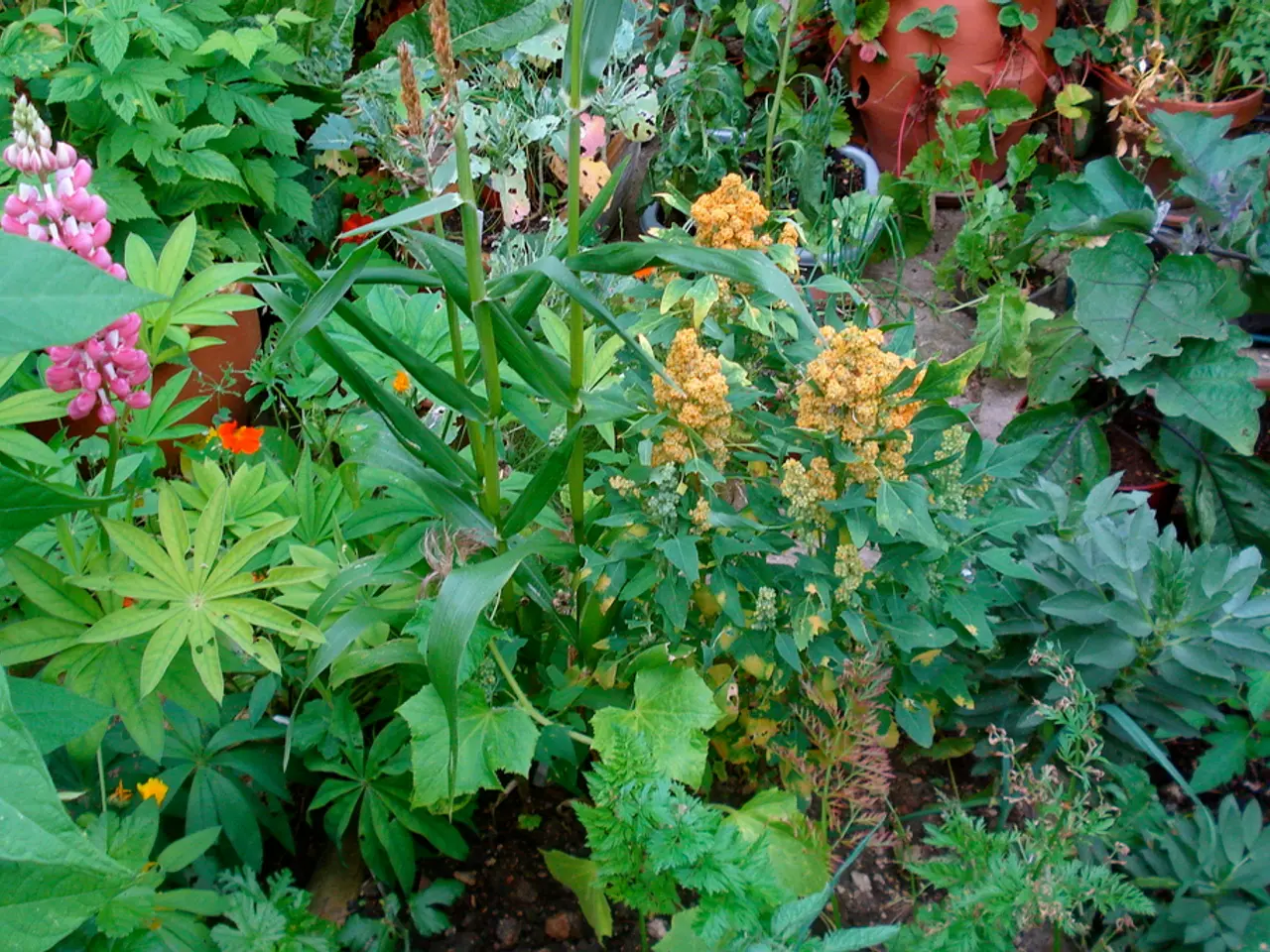Create Your Own Homegrown Herbal Infusions
In the world of herbal tea enthusiasts, there's a growing interest in cultivating a personal herbal tea garden. Here are ten easy-to-grow herbs that are perfect for small spaces, gardens, or containers, and are commonly used for steeping tea.
1. Chamomile (Common or German): Known for its daisy-like flowers and aromatic scent, chamomile is hardy and easy to grow from seed in spring. It's perfect for creating relaxing teas.
2. Mint: This herb is highly aromatic and prolific, making it a great choice for a fresh, cooling tea base.
3. Lemon Balm: Hardy and fast-spreading with a citrus scent, lemon balm is great for tea and also acts as a mosquito repellant.
4. Basil: Offering unique clove and cinnamon notes when brewed into tea, basil is easy to trim and grow during summer.
5. Monarda (Bee Balm): Known for its flowery blossoms that make fragrant tea.
6. Stinging Nettle: Rich in vitamins, stinging nettle is often added to tea blends for health benefits.
7. Lemongrass: Providing a distinctive lemon flavor, lemongrass is simple to grow and can often be propagated from cuttings or starts.
8. Parsley: Fast-growing from seed, tender and mild-flavored, parsley is suitable for tea additions.
9. Lavender: Woody-stemmed and usually grown from nursery starts, lavender is great for calming, fragrant tea.
10. Rosemary: Another woody herb, rosemary gives a pine-like aroma to teas.
These herbs are favored because many grow easily from seed or starts, have low maintenance needs, and produce flavorful, aromatic leaves or flowers suitable for herbal teas. Mint and lemon balm can be quite vigorous, so they may require containment or regular pruning.
This selection includes a mix of annuals and perennials, making it suitable for both beginners and experienced gardeners. It offers a range of herbal flavors from soothing flowers (chamomile) to refreshing leaves (mint, lemon balm) and vibrant, spiced notes (basil, rosemary).
In addition to these herbs, gardeners may also consider investing in a Premium Drinking Water Safe Garden Hose of size 7/16", a Stainless Steel Compost Keeper, or the Worm Factory 360 Composter for composting organic waste. For those who prefer raised garden beds, Farmstead offers Natural Cedar Raised Garden Beds, while the VegTrug Raised Garden Planter is made of Natural Wood. For those looking for a larger composting solution, the Jora JK270 Composter boasts a volume of 9.5 Cubic Feet.
Wildflower Farms Eco-Lawn Grass Seed is also available in a 5 lb pack for those who wish to cultivate a more diverse garden ecosystem. The Corn Gluten Organic Fertilizer, available in an 8-0-0 formula and weighing 40 lbs, can provide essential nutrients for a thriving herbal tea garden.
- Mint and lemon balm, with their strong aromas, make excellent choices for home-and-garden enthusiasts aiming to create a refreshing and cooling tea base within a lifestyle that incorporates home-grown drinks.
- For those who favor home-garden projects and appreciate the diversity of flavors in herbal teas, the mixture of chamomile, basil, lavender, rosemary, monarda, stinging nettle, lemongrass, parsley, and other herbs can add an array of soothing, spiced, and refreshing tea options to their home-and-garden lifestyle.




